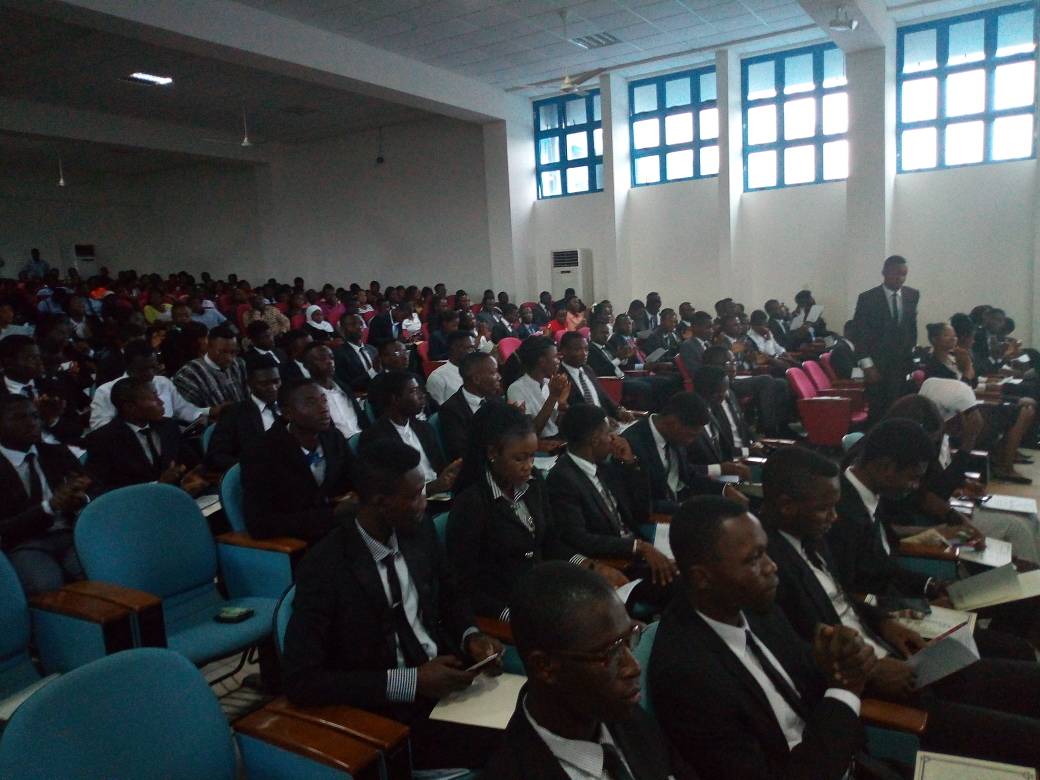 First year students of the University of Cape Coast have been admonished to prepare and plan their lives while they set principles and policies that would make them succeed, as they begin their new academic journey.
First year students of the University of Cape Coast have been admonished to prepare and plan their lives while they set principles and policies that would make them succeed, as they begin their new academic journey.
This advice came to the fore when the Students’ Representative Council (SRC) organized a programme dubbed ‘Freshers’ Akwaaba Seminar’ on Wednesday, September 20, 2017 to introduce the first year students to some important factors that would help them to make the best out of their stay on campus.
According to Mr. Edward Andoh, a lecturer at the Department of Social Sciences who spoke on the topic ‘Learning to Learn’, first year students need to challenge themselves to see that this period is a period of hard work and therefore there is the need to have a strong drive to study and also make sacrifices to have a fruitful stay.
He urged them to have challenging aspirations and big dreams. This, he said, would be a drive for them to devote themselves to serious academic work and also work harder to succeed.
“You have to remember the kind of homes some of you come from. You know what you went through before you were able to pay the admission fees. You have to remember the kind of houses your mum and dad and your other siblings are living in. You are here so that you go back and change such situation”, he explained.
He again urged them to be more curious and be mindful of anything that has the opportunity of distracting them from their targets.
“If you want to survive or study effectively, there are so many things that you have to disconnect. Parasite, as I call it, is anything that will come between you achieving the agenda set for yourself. Your friend or mobile phone can be a parasite to you”, he cautioned.
Professor Linda Forde, with the University Counseling Center, who was also present at the seminar touched on Campus Relationships and encouraged freshers to know the type of relationships they do not have to entertain.
“You are all adults, that is why you are here without your parents and the university is a place where a lot of relationships begin. But there is a difference between real love and infatuation”, she said.
According to Professor Forde, real love usually starts slowly and your partner sees your welfare unlike infatuation where you will find that he or she tends to see to their own quick personal satisfaction.
“If it’s infatuation, your partner tends to manipulate and pressurize you. This is also usually driven by excessive jealousy. It is driven by ‘if you love me, you would let me’. That is a threat and if anyone uses that you should know it is not real love, she remarked.
To further buttress her point, she mentioned that infatuation is a mere attraction to another person’s outward features and usually fades as time goes on.
She underscored the importance for young people to establish their own personal boundaries and stick to them, when entering into relationships. This, in her view, sets a foundation for a healthy opposite sex relationship and also establishes mutual respect in the relationship.
“Sometimes, young people are scared that if I stick to my own boundaries he or she may leave me but you can leave me. If you don’t respect my boundaries, then I don’t want to be in a relationship with you. That could be your stand. If you have good boundaries, it gives you the ability to confront potentially dangerous guys and ladies”, she stated.
In attendance were the SRC executives and other distinguished members of the university community.
Source: Nana Afia Tenkoramaa|Choicism.com





